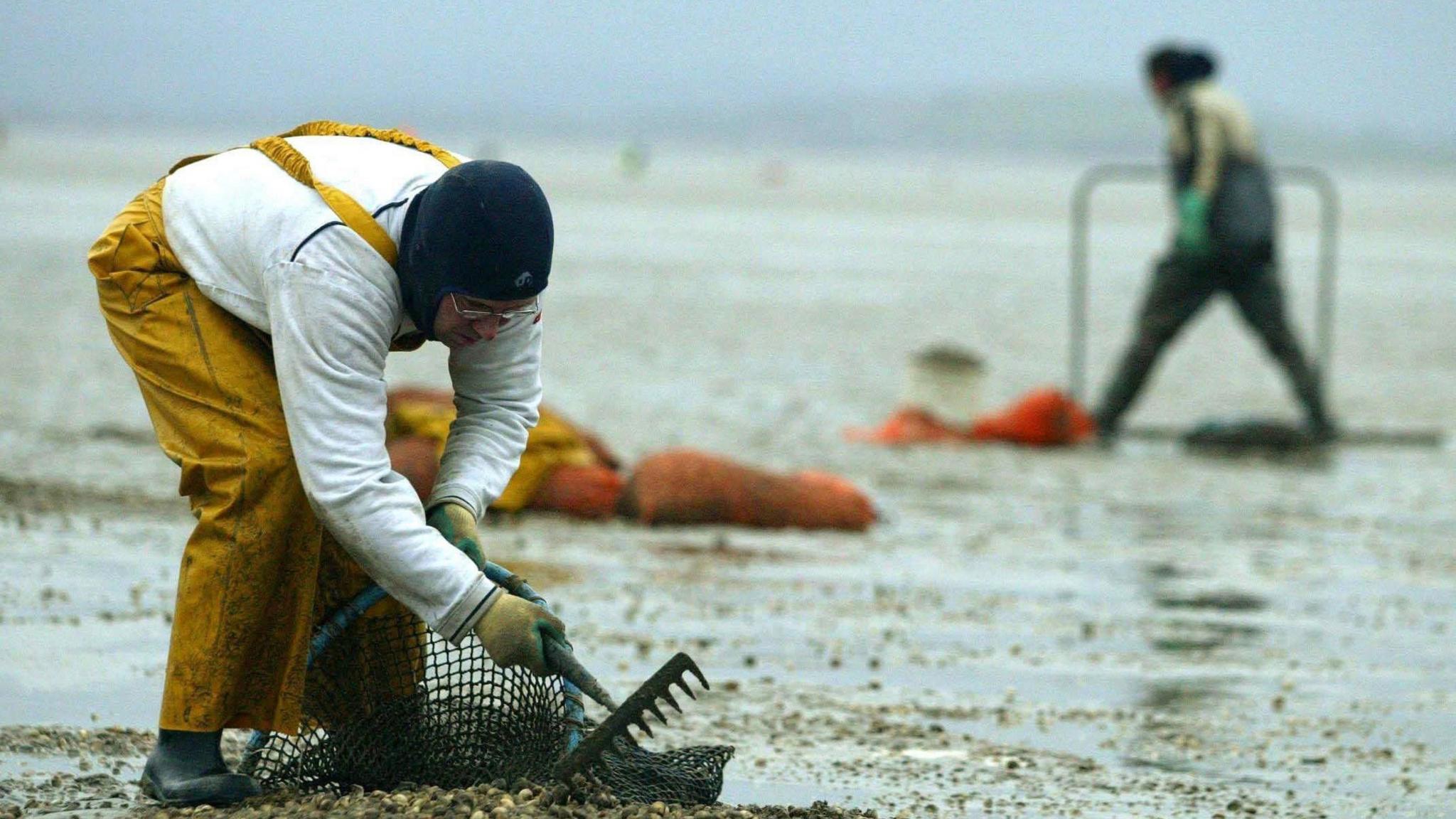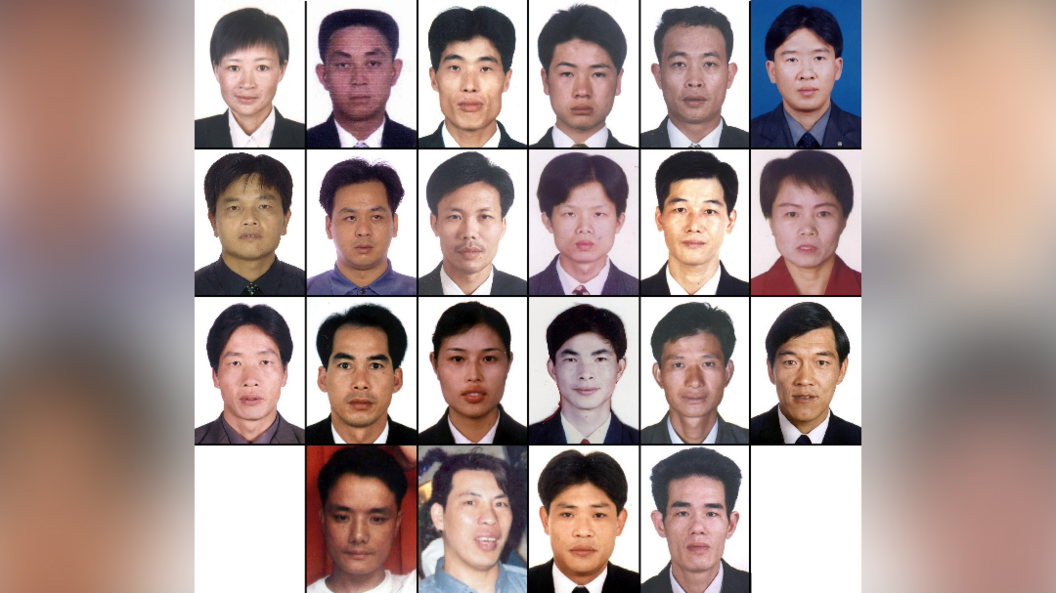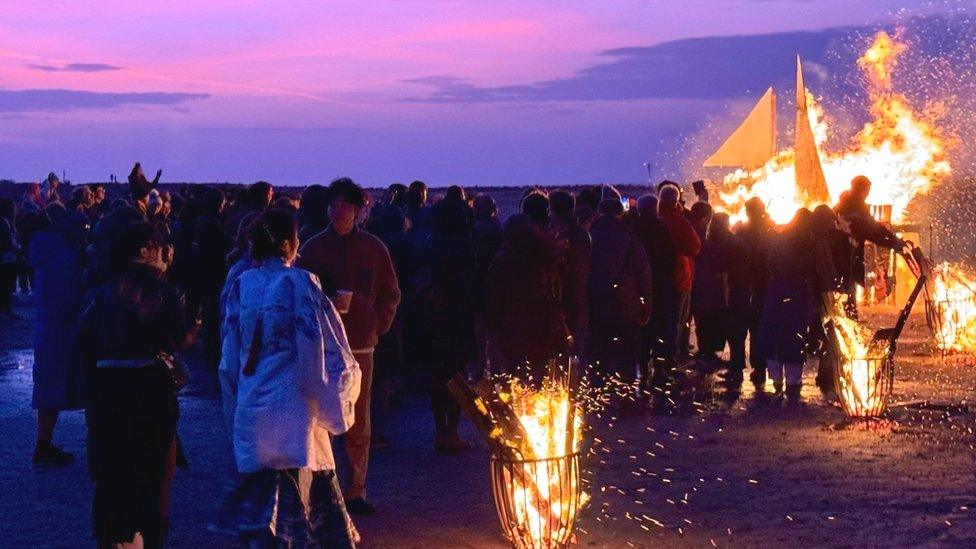Exhibition tribute to Morecambe Bay cockling victims

Cocklers back at work on the sands of Morecambe Bay in 2004
- Published
A "poignant" new exhibition is to remember victims of the Morecambe Bay cockling disaster 20 years ago.
More than 30 Chinese nationals were harvesting the shellfish from the sands of the bay in Lancashire on 5 February 2004 when they were cut-off by the incoming tide.
Twenty-three died after being swept out to sea.
The ensuing police investigation - Operation Lund - will form part of the exhibition at Lancashire Police Museum which opened on Friday in Lancaster.

The victims were aged between 18 and 45
The force has said the investigation was one of the most complex and emotive in their history, involving inquiries in several countries and witnesses who spoke little English and had no local knowledge.
Officers said many were from a farming background and had never even seen the sea until they went cockle picking.
Mick Gradwell, who led the operation, said the workload was "ferocious".
"For two years it was pressure with little let up," he added.
"The challenges included scared and missing witnesses, communicating in and translating from another language and massive press interest.”
'Sympathetic tribute'
The deaths exposed an underground world of cheap labour in which vulnerable migrants were exploited by criminal gangs and human traffickers.
In 2006, the group's gangmaster Lin Liang Ren was found guilty of manslaughter and jailed for 14 years.
The case also led to new laws to protect trafficked workers, contributed to the introduction of the Modern Slavery Act, and encouraged stronger guidelines around those working in cockle picking.
The exhibition will look at the timeline of the disaster, the investigation and also the trial.
A ginkgo memory tree in remembrance of those who died will also be on display, as well as objects used in the trial.
Visitors will be able to read quotes from some of the people who worked on the investigation, such as Paul Turner, who was a helmsman for the RNLI on the night.
Museum co-ordinator Sabine Skae said: "It threw the spotlight on an otherwise unknown crime - modern slavery - and led to changes in legislation.
“We’re very pleased with the new display which we feel is a poignant and sympathetic tribute to the victims - but also a story which highlights the work which goes into some of our more complex investigations at Lancashire Constabulary."
The museum, which is free to enter and run by volunteers, is open on Thursdays and Fridays from 10:30-12:30 BST and 13:30 BST-16:00 BST.
Listen to the best of BBC Radio Lancashire on Sounds and follow BBC Lancashire on Facebook, external, X, external and Instagram, external. You can also send story ideas to northwest.newsonline@bbc.co.uk, external
Related topics
Related internet links
Related stories
- Published5 February 2024

- Published3 February 2014
- Published4 February 2014
- Published5 February 2014